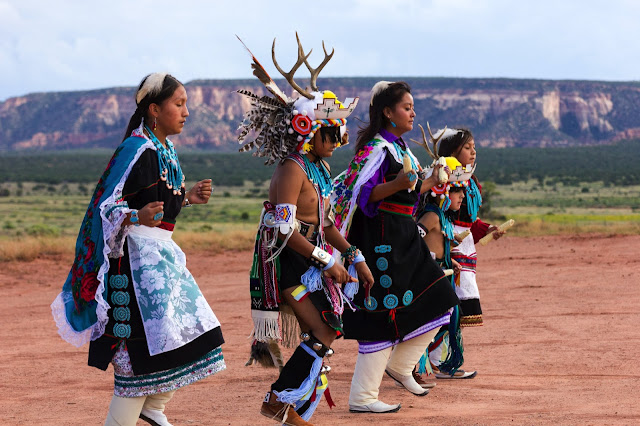Oglalas Demand DOJ Scrutinize Decades of Unsolved Murders
Published in Indian Country Today in 2012. For more on topics like this, see my book, American Apartheid: The Native American Struggle....
The situation has left people on the reservation feeling frightened and unsettled for decades, said the relative of one of the 57 victims, who asked not to be identified for fear of retribution: “I want to know what happened to my sister, but I’m afraid that if I look into this, someone will come after me.” Nevertheless, she said, somehow “justice should be done.”
Text c. Stephanie Woodard; photographs c. Joseph Zummo.
Cases of unexplained deaths occurring on or near the
Pine Ridge Indian Reservation since the 1970s should be re-opened and reinvestigated,
the Oglala Sioux Tribe told U.S. Attorney for South Dakota Brendan Johnson,
an official of the Department of Justice. The cases are among the 57 that the
FBI issued minimal details for in a May 2000 report that was supposed to settle the issue, but only provoked more questions..
Signed by Special Agent in Charge Douglas Domin of
the Minneapolis Division, the 2000 report lists the “rumors” associated with
each death, along with the “finding” of the FBI investigation. With the
document, the agency intended to quell suspicions of poor or non-existent investigations.
Many of the FBI’s explanations of what they did to
resolve the deaths at the time are lacking in either “rationality and common
sense,” said a letter to the U.S. Attorney from Oglala Sioux Tribe vice president Tom Poor Bear (shown here) and law and order
committee chair James “Toby” Big Boy. Examples of FBI “findings” include a man
who died of stab wounds to the face and neck and was ruled a suicide. In
another case, an axe murderer was not prosecuted because he or she had “a
mental condition.” Whether the “condition” was determined via a judicial
process or was merely someone’s guess is not clear; nor is it
apparent whether the mental problem led to hospitalization of any kind.
The FBI report seems to indicate that it did
not investigate cases in which federal officers were involved. In other situations,
coroners’ reports describe people as drunk prior to dying of exposure or
freezing to death; in some of these cases, tribal members believed the dead
were beaten, including by law enforcement, prior to being left for dead.
In their letter, Poor Bear and Big Boy noted that
Indians who murdered other Indians received light or suspended sentences or
short probations. This indicates “the dual standard of justice imposed by the
United States in treatment of crimes against Indians versus crimes against
non-Indians,” said the two officials. The bizarre, incomplete information
included in the FBI report tends to make the reader feel that it is all
suspect, added tribal attorney Lisa R. Shellenberger, of Smith, Shelton, Ragona
& Salazar.
At press time, the FBI did not have a response to
the tribe, said supervisory special agent and associate counsel Greg Boosalis,
of the Minneapolis office, which covers Minnesota and South and North Dakota.
“We are looking over the material now,” he said. Nor did he know why the FBI, a
Justice Department division that has jurisdiction over murder and other major
crimes in Indian country, chose those particular 57 cases for more explication.
According to tribal attorney Jennifer S. Baker, also
of Smith, Shelton, Ragona & Salazar, the brief paragraphs in the FBI
report are all the families of the dead have ever known of their kinfolks’
fate. “The tribe has zero information,” she said. How extensive the FBI files
are thatpresumably lie behind 2000 report is not known at this time, said Shellenberger,
who has made a Freedom of Information Act request for them. “We hope to have
the files in hand within a month,” she said.
The situation has left people on the reservation feeling frightened and unsettled for decades, said the relative of one of the 57 victims, who asked not to be identified for fear of retribution: “I want to know what happened to my sister, but I’m afraid that if I look into this, someone will come after me.” Nevertheless, she said, somehow “justice should be done.”
U.S. Attorney Johnson said “privacy concerns” and
“ethical restraints” meant his office could not provide additional information
on the deaths to the public at large but that he could communicate with family
members. To this end, he said, he is eager to meet with tribal members in the
weeks and months ahead. “Family members, whether their relative is on the list
of 57 or not, and whether they were victims of homicide or other crimes, should
contact me on my direct line, 605-357-2304, or via the Rapid City office’s main
number, 605-342-7822,” he said. “The door is not closed on these cases.”
According to Johnson, dealing with crimes from
decades past, long before he took office, is a challenge and that any new
prosecutions will require new evidence. However, he noted, in the three years
he has been U.S. Attorney, he has increased prosecutions on Pine Ridge by 40
percent. “We’ve made strides, but we have a long way to go,” he said.




